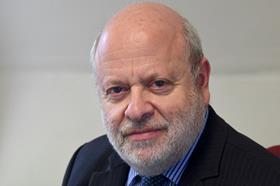A UN report published last month contained some hard words about lawyer arbitrators. Welcome to ‘How others see us, part 489’.

We think of ourselves as warriors for the rule of law. It is salutary to hear another view, in this case about lawyers participating in the ‘unjust, undemocratic and dysfunctional process’ of investor-state dispute settlement (ISDS) schemes.
The report was written by David R. Boyd, the UN special rapporteur on the issue of human rights obligations relating to the enjoyment of a safe, clean, healthy and sustainable environment.
ISDS allows investors to sue states for action which impacts on an investment, including when the state takes regulatory action, for instance to combat climate change or to improve the environment. ISDS was originally established to protect investors from colonial or other dominant powers from the expropriation of their assets without compensation by newly independent states. But few ISDS claims involve complaints about direct expropriation – instead, the vast majority follow regulatory or permitting actions taken by states. The rapporteur claims that foreign investors have weaponised a secretive international arbitration process to challenge climate and environmental actions taken by states, demanding billions of dollars in compensation.
One of his examples, which gives a flavour of the overall report, is Tethyan Copper Company v Pakistan. This concerned a mine to which the Pakistani government did not give the go-ahead. Pakistan was ordered to pay $5.8bn in compensation, more than the grants and loans Pakistan received in 2022 following the climate-related floods that covered one third of the country and affected millions. Pakistan applied to stay enforcement on the grounds that it would lead to removal of funding for health, social and welfare programmes for its citizens. With interest accruing, so that the arbitral award was valued at $11bn in 2022, Pakistan capitulated, allowing the mine to proceed.
The recently reported decision in Nigeria v P&ID also appears in the UN report, listed as ranking fourth among the largest known ISDS awards. (That was before the arbitration award of more than $11bn was overturned by the High Court, having been obtained through severe abuses of the arbitral process). It is also listed among those which touched on the climate or the environment.
The rapporteur says that billion-dollar ISDS claims are becoming routine in climate and environmental cases, representing a treasure trove for foreign investors and an economic nightmare for low- and middle-income states.
As for the role of lawyers, this is what the rapporteur says:
- ISDS was developed in the first case through substantial influence exerted by oil company executives and their lawyers;
- the cases are decided not by independent judges but by arbitration lawyers, many of whom work for law firms that represent investors (a review of decided cases between 1987 and 2017 showed that 61% were decided in favour of investors);
- lawyers are often perceived to have conflicts of interest or pro-investor biases;
- the arbitrators are predominantly white, male, business-friendly investment lawyers from the global north, many of whom litigate ISDS cases for clients or work for firms that do so. The overwhelming majority of fossil fuel and mining ISDS claims are brought by investors from the global north against countries in the global south (for instance, the majority of fossil fuel and mining ISDS claims filed between 1995 and 2021 were brought by investors from just five countries (Australia, Canada, Netherlands, the UK and the US); and Latin American countries have been subject to 327 ISDS claims);
- there is a problem of revolving doors (lawyers serve, sequentially, in various roles – as a lawyer in one case, an arbitrator in another and an expert in yet another case) and ‘double hatting’ (acting as a lawyer and an arbitrator in two or more cases at the same time, raising serious concerns about the ability to adjudicate cases fairly); and
- most arbitrators lack human rights and environmental law expertise.
That is quite the contrary view of our profession to that we hold ourselves.
The rapporteur’s claims about lawyers in the process have been made by others before. For instance, I reported about complaints against lawyers’ multiple roles by the European institutions in ISDS in 2015. So it is startling to see that, despite this problem being known about for years, little has changed.
The rapporteur devotes an annex to a brief summary of ISDS reform efforts. He is damning about most of them, although the OECD’s work programme on the future of investment treaties and the EU’s multilateral investment courts hold out some hope for change.
This is an issue which deserves wider publicity, and which the profession itself should discuss. It would be best if solutions emerged from our own ranks rather than eventually being imposed from outside.
Jonathan Goldsmith is Law Society Council member for EU & International, chair of the Law Society’s Policy & Regulatory Affairs Committee and a member of its board. All views expressed are personal and are not made in his capacity as a Law Society Council member, nor on behalf of the Law Society































4 Readers' comments